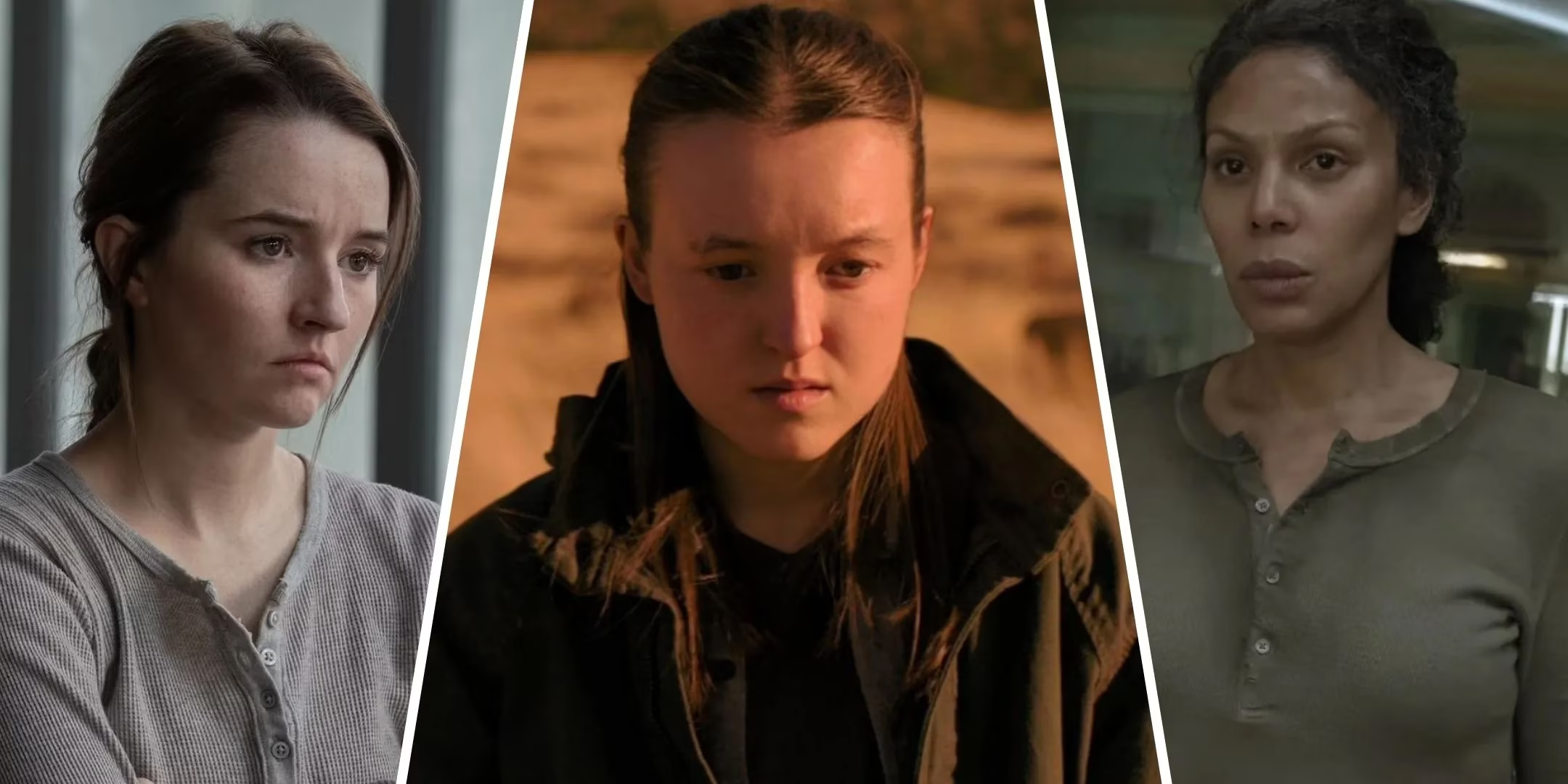The Last of Us' Most Compelling Female Characters: Complexity in Chaos
Explore how The Last of Us redefines storytelling with complex female characters—raw, flawed, and emotionally compelling in post-pandemic America.
In the crumbling ruins of post-pandemic America, The Last of Us franchise reshapes storytelling through female characters who defy simplistic archetypes. 🔥 These women aren't damsels in distress but flawed survivors navigating moral quagmires where violence and vulnerability coexist. Their narratives reject idealization, instead embracing raw humanity – from questionable choices born of desperation to tender moments that pierce through darkness. As the HBO adaptation expands their stories across seasons, these characters continue evolving beyond traditional gaming tropes, creating emotional depth that resonates years after their introduction. In a landscape saturated with apocalypse tales, it's their psychological complexity that transforms fungal horrors into hauntingly human dramas.

💉 Mel: The Conscience in Carnage
Defying the franchise's brutal norms, this gentle medic becomes its moral compass. While warriors like Abby wield violence as language, Mel confronts allies about ethical compromises. Her pregnancy during Part II's events adds visceral stakes – protecting unborn life while questioning Firefly extremism. Though not a combat specialist, her determination to safeguard Owen and their child reveals strength beyond physicality. That ultimate sacrifice? A narrative gut-punch reminding us that compassion often carries the highest cost in this world.
🔥 Tess: Pragmatism with Principles
Joel's original smuggling partner epitomizes survivalist intelligence without losing humanity. Her HBO series expansion avoids romantic clichés, instead crafting a bond with Joel built on mutual respect and restrained affection. The ultimate pragmatist, Tess makes devastating calculations: trading her infected body for Ellie's escape while ensuring Joel honors their mission. Her self-sacrifice becomes the franchise's first major emotional earthquake – proof that heroism wears many faces.
💘 Riley Abel: Catalyst for Change
Ellie's first love interest fuels the protagonist's evolution through radical idealism and tragic loss. Their Boston QZ adventures reveal the Fireflies' appeal to disillusioned youth, while their mall escapade showcases rare teenage normalcy. Riley's radicalization versus Ellie's skepticism creates fascinating friction, making her inevitable transformation into Infected a devastating turning point. Storm Reid's HBO portrayal amplified this emotional resonance, cementing Riley as the ghost forever haunting Ellie's conscience.
🌸 Sarah Miller: Lost Innocence Personified
The outbreak's opening witness represents everything the pandemic destroys. Through her eyes, we experience pre-collapse normalcy – homework, dad jokes, mundane worries. Her brief existence magnifies Joel's trauma, transforming her from plot device into emotional anchor. Remarkably, Sarah's limited screen time delivers profound impact: her kindness towards neighbors and quiet courage during chaos make that fatal soldier encounter unbearably cruel.
| Character | Defining Strength | Core Conflict |
|---|---|---|
| Maria Miller | Community Building | Future vs Survival |
| Anna Williams | Maternal Sacrifice | Legacy & Protection |
| Dina | Unconditional Support | Love vs Self-Preservation |
🏡 Maria Miller: Architect of Hope
Jackson's de facto leader revolutionizes post-apocalyptic storytelling by focusing on rebuilding rather than surviving. Pregnant during the HBO adaptation, she embodies faith in humanity's future while challenging Joel's trauma-driven worldview. Her administration prioritizes schools, gardens, and communal safety – radical acts in this universe. Maria's greatest strength? Halting vengeance cycles by protecting Ellie from self-destruction.
✨ Anna Williams: Legacy in Blood
Ellie's mother emerges through metanarrative brilliance: portrayed by Ashley Johnson (Ellie's voice actor) in the HBO series. Her post-birth struggle against Infected becomes a visceral metaphor for parental sacrifice. That desperate plea to Marlene – "Keep her safe" – echoes across Ellie's entire journey. Though appearing only in supplemental materials, Anna's resilience crystallizes the franchise's core theme: love as both salvation and burden.
🌿 Dina: Light in Darkness
Ellie's partner delivers crucial emotional respite in Part II's bleak landscape. Their farmstead idyll provides temporary sanctuary before Seattle's chaos, with Dina's pregnancy adding urgent stakes. Unlike traditional love interests, she actively shapes Ellie's path – joining her revenge quest despite risks, then choosing self-preservation when principles collide. Her humor and warmth make the inevitable heartbreak resonate deeper, proving kindness requires extraordinary courage in this world.
🕯️ Marlene: The Burden of Leadership
Firefly commander Marlene shoulders impossible decisions where every choice stains her soul. Her connection to Anna transforms Ellie's immunity from medical miracle to personal tragedy. That ultimate choice – sacrificing Ellie for a cure – haunts both game and series, revealing leadership's lonely weight. Merle Dandridge's portrayal layers revolutionary fervor with profound sorrow, creating a villain-hero paradox rarely achieved in any medium.
💪 Abby: The Franchise's Boldest Gamble
Naughty Dog's controversial creation shatters expectations through physicality and emotional complexity. Her muscular design (toned down in the HBO series) defies gaming conventions, while her quest for redemption parallels Ellie's descent. Abby's perspective flips player allegiances, forcing uncomfortable empathy. Is she villain or victim? Executioner or savior? This deliberate moral whiplash remains the franchise's most daring narrative achievement.
🎮 Ellie: Evolution of an Icon
From protected teen to traumatized avenger, Ellie's transformation redefines gaming protagonists. Her Part II journey mirrors contemporary struggles with trauma and identity – the explosive anger, survivor's guilt, and fractured relationships feel painfully human. That final farmhouse scene? A masterclass in unresolved endings. With future installments inevitable, her path remains compellingly unpredictable: Can she rebuild what vengeance destroyed?
These characters linger precisely because they reflect our messy reality back at us. Their choices spark debates about morality in extremis – is Marlene's calculus justified? Does Abby deserve redemption? What remains of Ellie after so much loss? As new stories emerge from Cordyceps-ravaged America, perhaps the real question isn't about surviving the apocalypse, but what versions of ourselves we'd become within it. 💭
